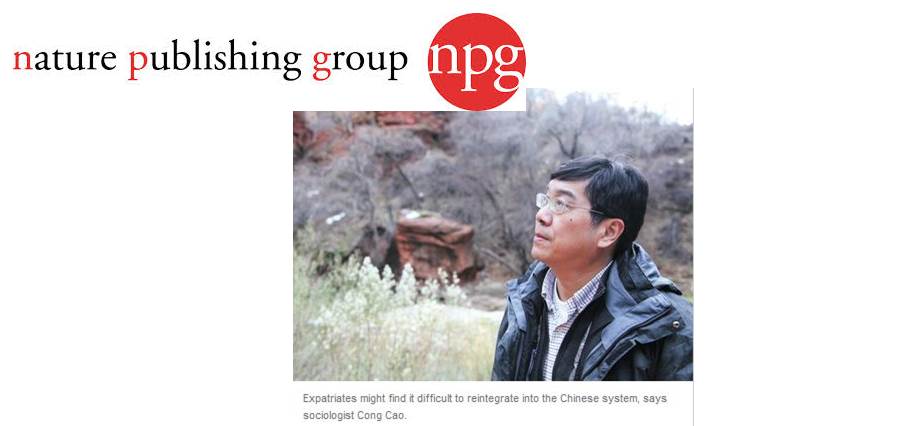Nature.com Interviews IEMS’ David Zweig on How China is Trying to Combat its “Brain Drain” Issues

In a Nature.com article on how China is trying to stem its brain drain issues by luring back expatriates with generous incentives, IEMS’ David Zweig provided his perspective and expertise on the situation:
“One of the main concerns is where the position is based. Only a few Chinese institutions — among them Tsinghua University and Shanghai’s Fudan and Jiao Tong universities — offer conditions that are comparable to those at top Western institutes. Researchers there can count on state-of-the-art lab equipment, top-quality collaborations with foreign institutions, adherence to the precepts of research integrity, the absence of old-boy-network practices and a high calibre of students, faculty and visitors. But at less-esteemed universities in smaller cities, the level of science is often second-rate, says David Zweig, chair of social sciences at the Hong Kong University of Science and Technology. He suggests avoiding universities that allow professors to keep on their own PhD students routinely as they become postdocs and professors. “You only want to go to places that send students out to the world.”
Returnees should also seek out a mentor who is familiar with local circumstances and can help them to acclimatize and to deal with problems if they arise. “As an outsider, you’d otherwise be pretty much lost,” Zweig says. “You might not even be able to get any research money.””
Read the full article here: China: At a Crossroads
Get updates from HKUST IEMS







